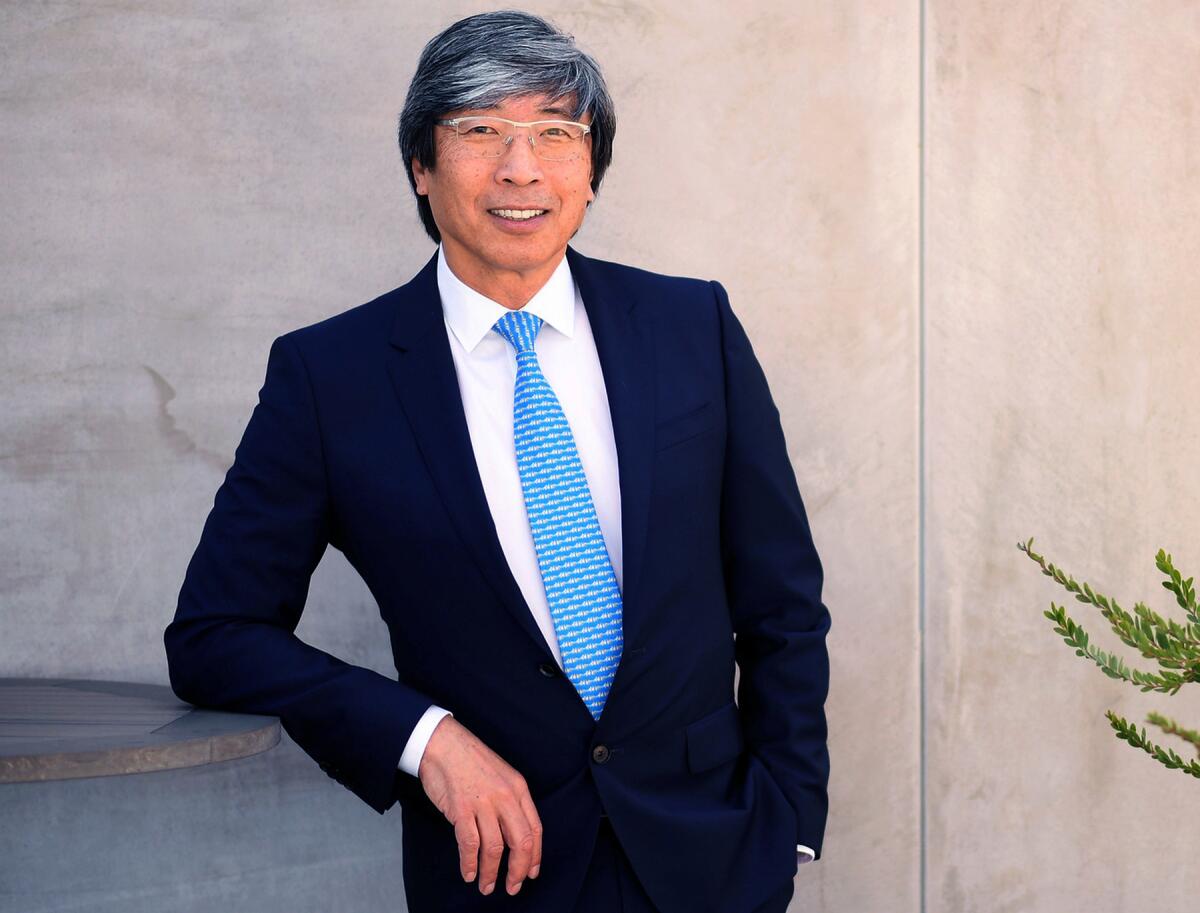L.A. Times owner pledges $213 million for COVID-19 vaccine work in South Africa

- Share via
Los Angeles Times owner Dr. Patrick Soon-Shiong will give an initial $213 million to South Africa, the country of his birth, to help with the transfer of new technology for COVID-19 vaccines and other therapies.
The country has “the science, the human capital and the capacity and the desire,” Soon-Shiong, a physician and biotechnology billionaire, said Wednesday at an international meeting on equitable vaccine distribution co-chaired by the director-general of the World Health Organization. “South Africa could catalyze the capacity building and self-sufficiency and most importantly the innovation for Africa and for vaccines.”
Through his family foundation and businesses, Soon-Shiong, 68, also plans to work with countries on the rest of the continent to enable the development of second-generation vaccine capabilities. This will help “address variants of the coronavirus that might make current vaccines less effective” and to ensure manufacturing of shots needed for other diseases, he said.
Soon-Shiong’s comments come after one of his companies, ImmunityBio Inc., agreed to a deal to manufacture COVID-19 vaccine doses with the BioVac Institute, a state-backed South African vaccine company. The U.S. company’s version of the COVID-19 shot is in Phase 1 trials and may form part of a new wave of vaccines that could be used to inoculate less developed parts of the world such as Africa.
Soon-Shiong is worth $15 billion, according to the Bloomberg Billionaires Index. In 2018, he acquired The Times and San Diego Union-Tribune from Tribune Publishing in a $500-million deal.
While many richer parts of the globe, such as the U.S. and the United Kingdom, are well advanced in their vaccination programs, most African countries are significantly trailing. The continent accounts for about 1.5% of global administered shots, data from the Africa Centers for Disease Control and Prevention show. That’s led to global fears about the spread of new variants that may prove resistant to current vaccines.
South Africa and India are leading a campaign to compel drugmakers to waive patents and share so-called recipes to speed up global distribution.
“As important as the intellectual-property waiving is, the issue is the transfer of real know-how,” Soon-Shiong said. “I don’t think the world yet recognizes that these current variants, especially now the variant that started in India and in South Africa, has what we call conformational change — antibodies are going to be less effective. What we really need now is second-generation vaccines.”
More to Read
Inside the business of entertainment
The Wide Shot brings you news, analysis and insights on everything from streaming wars to production — and what it all means for the future.
You may occasionally receive promotional content from the Los Angeles Times.










